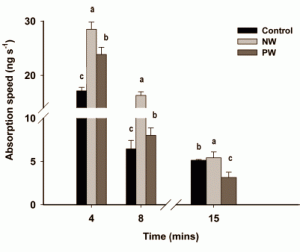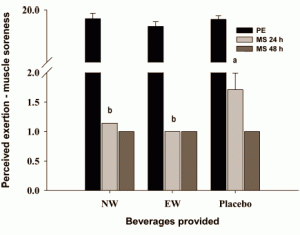By Admin – Steroidal.com
Watermelon is a fruit and quick digested carbohydrate with an array of health benefits. Containing thiamin, riboflavin, niacin, vitamin B-6, folate, pantothenic acid, magnesium, phosphorus, potassium, zinc, copper, manganese, selenium, choline, lycopene and betaine, its easy to see why watermelon is a popular fruit.
Watermelon, with its red edible flesh, contains more lycopene than any other fruit or vegetable, including tomatoes. Lycopene is a potent anti-oxidant and anti-cancer phytochemical and is the reason why tomatoes are seen as nutrient-rich vegetables. If you were not consuming watermelon or tomatoes, now would be a good time to adjust your nutrition plan.
So we know about its positive health benefits, but what about its effects if I’m a bodybuilder, athletes or someone that exercises regularly?
Well, there is good news; watermelon contains high amounts of L-citrulline, which can help maintain muscle mass when dieting. L-citrulline is an amino acid found in pre-workout and post-workout muscle building products due to increasing performance, muscle mass and strength. So, one could assume watermelon would benefit someone exercising or lifting weights.
According to nutritionists in Spain, at the Universidad Politecnica de Cartagena, ingesting watermelon may help reduce muscle soreness after training, or delayed onset muscle soreness (DOMs).
The study was done in August 2013 and looked at whether eating watermelon prior to heavy training would aid in recovery and reduce soreness.
First the Spanish nutritionists wanted to see if gut cells (Caco-2 cells) absorbed L-citrulline found in watermelon. The nutritionists used watermelon juice and also pasteurised watermelon juice. Pasteurisation is a method used to kill bacteria and is done by heating the food or liquid, but in our case, watermelon. The effect killed some of the compounds that are used in the uptake of L-citrulline, so the unpasteurised watermelon juice was a better source of L-citrulline.
They used three different watermelon juices for the experiment. A control was used which was L-cittrulline, pasteurised juice [PW] and finally, unpasteurised melon juice [NW].
The different juices were given to a set of active students and results recorded. Half a litre [NW] of melon juice was given to them first and they were told to cycle for one hour, which was broken down to 30 second intervals, 8 times in a row.
On the two other occasions, the students were given no active ingredients [placebo], or melon juice the nutritionists had added 2g of L-citrulline to [EW].
Not much was observed that was statistically significant, but what they found was muscle soreness was less in the period following the exercise in the watermelon juice group [NW], and also in the group where L-citrulline was added [EW].
“This paper demonstrates the possible ‘functionality’ of watermelon juice rich in natural L-citrulline”, the researchers write. “Future research should be focused on the minimal concentrations of citrulline required for reduction of muscle fatigue and other health benefits in stress, athletic performance, and cardiovascular disease. This amino acid could be supplied as watermelon juice or as products enriched in L-citrulline from watermelon extraction.”
As we said earlier, if you’re not ingesting watermelon daily, it would be worth adding this excellent vitamin and nutrient-rich fruit into your diet plan, due to the above benefits.
References:
J Agric Food Chem. 2013 Aug 7;61(31):7522-8.


